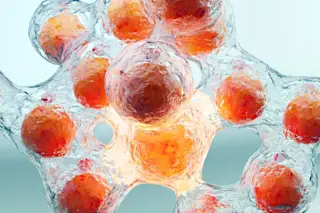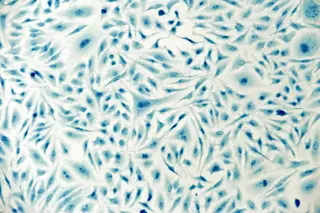Racial profiling, already derided in law Enforce- ment, isn't looking too good in medicine either. Although clinical drug trials often group participants by ethnic background to help reveal whether certain groups of people have particularly positive or adverse reactions, a new study indicates that race is a poor indicator of relevant genetic similarities.
Geneticist David Goldstein of University College London and his colleagues performed a DNA analysis on 354 participants and noted the variations in six genes that regulate the production of enzymes affecting an individual's drug reactions. When the researchers organized those people into genetic clusters—groups that should have similar responses to medications—the results belied the importance of skin color and ethnicity. For instance, 62 percent of Ethiopians fall into the same genetic cluster as most Jews, Norwegians, and Armenians. "Ethnic labels are just not a good guide to genetic makeup," Goldstein says. He sees genetic clustering as an interim step toward personalized medicine, in which doctors will develop treatments tailored to an individual patient's genetic profile. Such pharmacogenomics could significantly reduce the number of adverse drug reactions, which affect 2 million patients a year in the United States alone.














